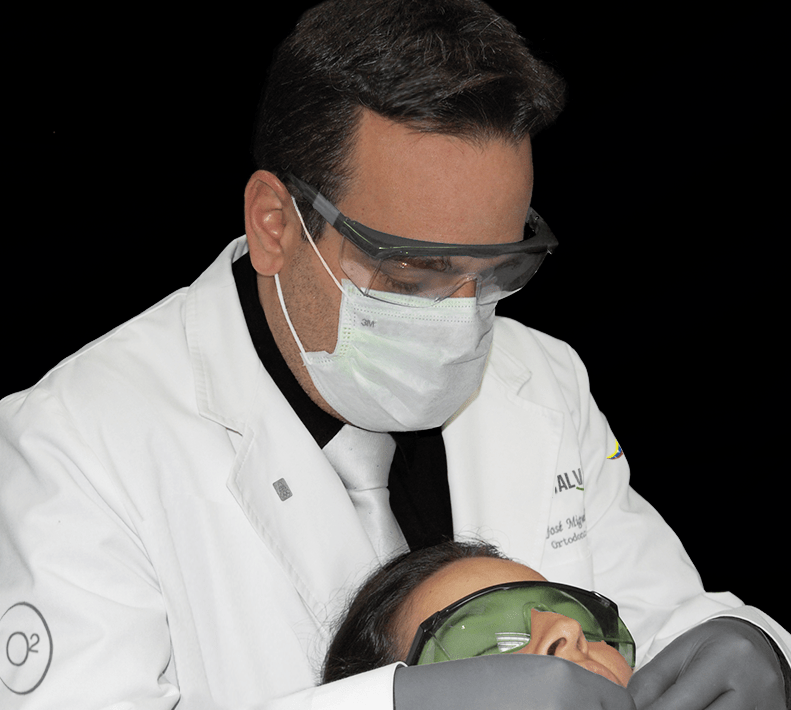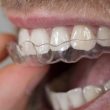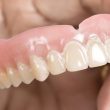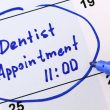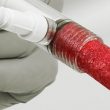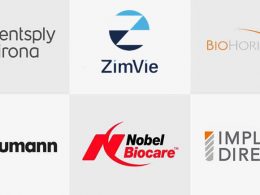Table of Contents
The long-term success of dental implant therapy is undoubtedly linked to optimal dental plaque control, that is, good oral hygiene. In this regard, we have analyzed the opinions expressed in the corresponding literature in relation to home and professional hygiene procedures that should be applied in patients with implant prostheses.
We know that the soft tissues around the implants, like the periodontal ones, can be exposed to inflammatory and infectious processes caused by food debris and bacterial plaque, not different from those seen in natural dentition.
In this prevention perspective, the patient must participate directly who, in the periodic controls set every 3-6 months in relation to the health conditions of his periodontal and peri-implant tissues, will be repeatedly motivated to practice scrupulous and dedicated oral hygiene at home.
It is important to know that the surface of the neck of a new implant, although it is very shiny and polished, is not perfectly smooth, but shows irregularities such as grooves and cracks that are visible under the microscope, and that are related to metal machining processes. Therefore, implants retain food and plaque on their surface.
Knowing how to clean dental implants well and taking the time to care for them meticulously is just as important as it is for natural teeth. If not done, the bone and gums will eventually become infected (peri-implantitis), and for sure, the implants will loosen and lose.
The professional staff at DENTAL VIP prides itself on providing their patients with the tools and knowledge necessary to keep their mouths, implants and smiles always healthy. Let us see below our recommendations in this regard and the main oral hygiene resources on dental implants:
Dental Plaque Developer
Plaque developer is a substance that is introduced into the mouth and contains a colorant that, when it comes into contact with the biofilm formed by bacteria, dyes it color, so it is very easy to see the dirty areas and that have remained without brushing well.
In consultation, the use of plaque developer helps us to show the patient the areas where bacteria accumulate, brushing fails and it is necessary to pay more attention.
In addition, it is very useful for the patient to self-evaluate at home, to know how to control the hygiene of their implants and to be able to correct the applied techniques.
Toothbrushes
With them we will eliminate the bacteria from the exposed faces of the teeth and prosthetic structures (vestibular, lingual or palatal and occlusal). There are really no statistically significant differences between the effectiveness of electric versus manual toothbrushes for the preservation or recovery of soft tissue vitality.
In general, implant-supported prostheses tend to be “less hygienic” than natural tooth prostheses. On too many occasions, prosthetic designs, as a consequence of the loss of maxillary bone mass, the inclination of neighboring teeth or the difference between the size of the implant and the crown; entail great difficulty in accessing the implant-crown-gingiva area to remove plaque.
There are different designs of brushes on the market with smaller heads, fewer rows of tufts, a single bridle and different angles of the handle that make it easier for us to reach difficult-to-access areas.
Interdental Brushes
There are different sizes and designs of interdental or interproximal brushes. Tapered, cylindrical, straight handle, angled handle, short handle, long handle, etc. We will always choose the size and shape that allows us to access the interdental space without exerting excessive force or pressure.
We usually recommend those with a nylon or teflon coated metal stem and interchangeable disposable tips.
Dental Floss
The emergence profile of the prosthesis on implants, especially on molars, makes access to the gum-implant area difficult. With dental floss, we can correctly access the junction of the mucosa with the pillar of the prosthesis, without traumatizing the soft tissues.
Also, we must resort to dental floss to clean the pontics or phantoms (artificial teeth that are in the air and that cover the gum) and the retention elements of overdentures (bars, ball attachments and Locators®).
We always recommend using soft floss, floss threaders to facilitate the process and flossing through the embrasures between abutments or resorting to the use of special dental floss for prosthetics, sponge type and with rigid ends, such as Superfloss™ by Oral-B.
Rubber Tips
The rubber tip or interdental stimulator is a flexible oilcoat or plastic tip that is attached to the free end of a handle. It is used only to access the interdental space when it is very wide or very open.
The rubber tip massages the gums and helps dislodge food particles and dental plaque to clean between teeth and implants. In addition, it stimulates the flow of blood circulation and promotes firm and healthy gums.
Oral Irrigators
An oral irrigator is a device that, by means of a small jet of water that is applied under pressure to teeth, implants, gums and other oral tissues; allows to eliminate food debris and bacterial plaque. In other words, it works as a kind of “hydrojet”.
These devices are composed of a base in which the water is charged and which is attached by means of a cable to the handle of the irrigator. The mouthpiece is connected to this handle, which is the part that is inserted into the mouth.
In general, the cleaning that the irrigator allows is achieved with plain water, although it can also be mixed with small amounts of mouthwash or chlorhexidine, to also add the antibacterial effects of these substances. If you want to use these solutions, the ideal thing is that it is always the Dentist who indicates them. In our opinion, the great secret of oral hygiene in patients with dental implants is the permanent use (at least once a day) of a Waterpik®-type oral irrigator.
In our experience, a Waterpik® oral irrigator with the Plaque Seeker™ tip helps clean around implants very effectively. This tip is designed to provide the benefits of pulsating water and has three fine tufts of bristles to access the tough plaque around implants and other areas that are especially susceptible to its accumulation.
In fact, clinical research found that the Waterpik® oral irrigator used with the Plaque Seeker™ tip is twice as effective as floss for dental implant patients.
In our opinion, the irrigation technique will always be indicated as a coadjuvant resource in the hygiene of patients with orthodontics, fixed prostheses and dental implants.
Pastes and Mouthwashes
Until now, no toothpaste has proven to be better than another for dental implant hygiene. Those with fluoride, triclosan, CPC or other products of proven efficacy for daily cleaning of teeth, will also be suitable for brushing implants.
However, we always recommend the use of low abrasive toothpastes, between 50 and 200 RDA (Relative Dentin Abrasivity).
For the chemical control of the biofilm, mouthwashes, such as Perio-Aid®, with chlorhexidine and cetylpyridinium chloride in different concentrations, can also be used. Its indication will be made by the professional depending on the particular conditions of the patient.
These antiseptics have been shown to have an antiplaque and antigingivitis effect, which means that they can inhibit the growth of bacteria that settle on teeth and implants, and in this way achieve minimum levels of plaque that are compatible with health and long-term rehabilitations.
Chlorhexidine
Chlorhexidine is undoubtedly the most effective oral antiseptic, since with its use the reduction of plaque and gingivitis reaches 60%. Its mechanism of action is carried out through a reduction in the formation of the acquired film, alteration of bacterial development and interference with its adhesion to surfaces.
It comes in three forms: digluconate, acetate, and hydrochloride, although the vast majority of commercial products use digluconate in 0.12 or 0.20% concentrates.
If the Dentist prescribes it, it is recommended to make a swish with 10 ml of product at a concentration of 0.20% or 15 ml at 0.12%.
However, be very careful with this product and use it only under professional prescription, since as a side effect it can produce noticeable brown pigmentations on natural teeth, some restorative materials and oral mucous membranes; mainly on the back of the tongue. In addition, chlorhexidine can cause serious alteration of the sense of taste and scaly lesions in the alveolar mucosa. It is definitely not a self-medicating product!
Professional Cleaning in Office
Currently we know that because it is harder than pure titanium, the use of conventional stainless steel instrumentation applied in cases of natural dentition can cause damage to the oxide layer of titanium, reducing the resistance capacity of the implant to the phenomenon of corrosion.
For this reason, the current trend is to avoid metallic instruments and contemplates the use of teflon-type plastic curettes that exert a less aggressive action on the surface layer of the implant, and since they have a lower hardness and greater elasticity than metal; they leave negligible effects on the titanium surface.
According to many authors, implant patients should undergo regular check-ups every 3 to 6 months, according to the particular health conditions of their periodontal and peri-implant tissues.
A Life Insurance for Your Dental Implants!
Bruxism, which consists of unconsciously clenching and grinding the teeth (usually at night when sleeping), and whose main risk factors are stress and anxiety, can deteriorate dental implants, so it is necessary to detect the disorder before make the final prostheses on them.
But in addition, it is essential to accustom oneself to using a splint or night protector to sleep and thus protect the implants against the effects of this parafunctional habit. We consider this measure so important that its use is our main requirement when exercising any claim or right regarding treatment guarantees.
“Carelessness and Poor Oral Hygiene, Are Usually a Certain Death Sentence for Dental Implants”.
DENTAL TIP
Long-Term Implant Success Depends on You…
Proper bacterial plaque control is imperative for the long-term success of implants. For this to be possible, you must know the prosthesis you are wearing, the oral hygiene resources that exist in the market and, with our help of course, choose the most appropriate for your case.
In addition, it is necessary to always use a mouth guard to sleep and actively join a maintenance program where it is verified that the oral hygiene techniques in which you were instructed are complied with, and in which the parameters of your peri-implant health are controlled.
Making Dentistry Care Simple and Affordable!
DENTAL VIP is one of the most modern and recognized private dental clinics in Venezuela, and it could be your trustworthy partner in dental treatment abroad offering you: over 12 years of experience in dental tourism, excellent Dentists, high quality treatment covered by guarantee, comprehensive care, supportive and helpful staff, affordable prices and comfortable stay at our recommended hotels in Caracas.
All Dentists working at DENTAL VIP have a long experience in Dentistry and are highly qualified. Our Dentists, apart from having fourth level studies, regularly take part in domestic and foreign trainings, conferences and seminars.
The quality is guaranteed, and the price too! Do not waste any more time, contact us today and save up to 70% on extensive or highly complex dental treatments.
